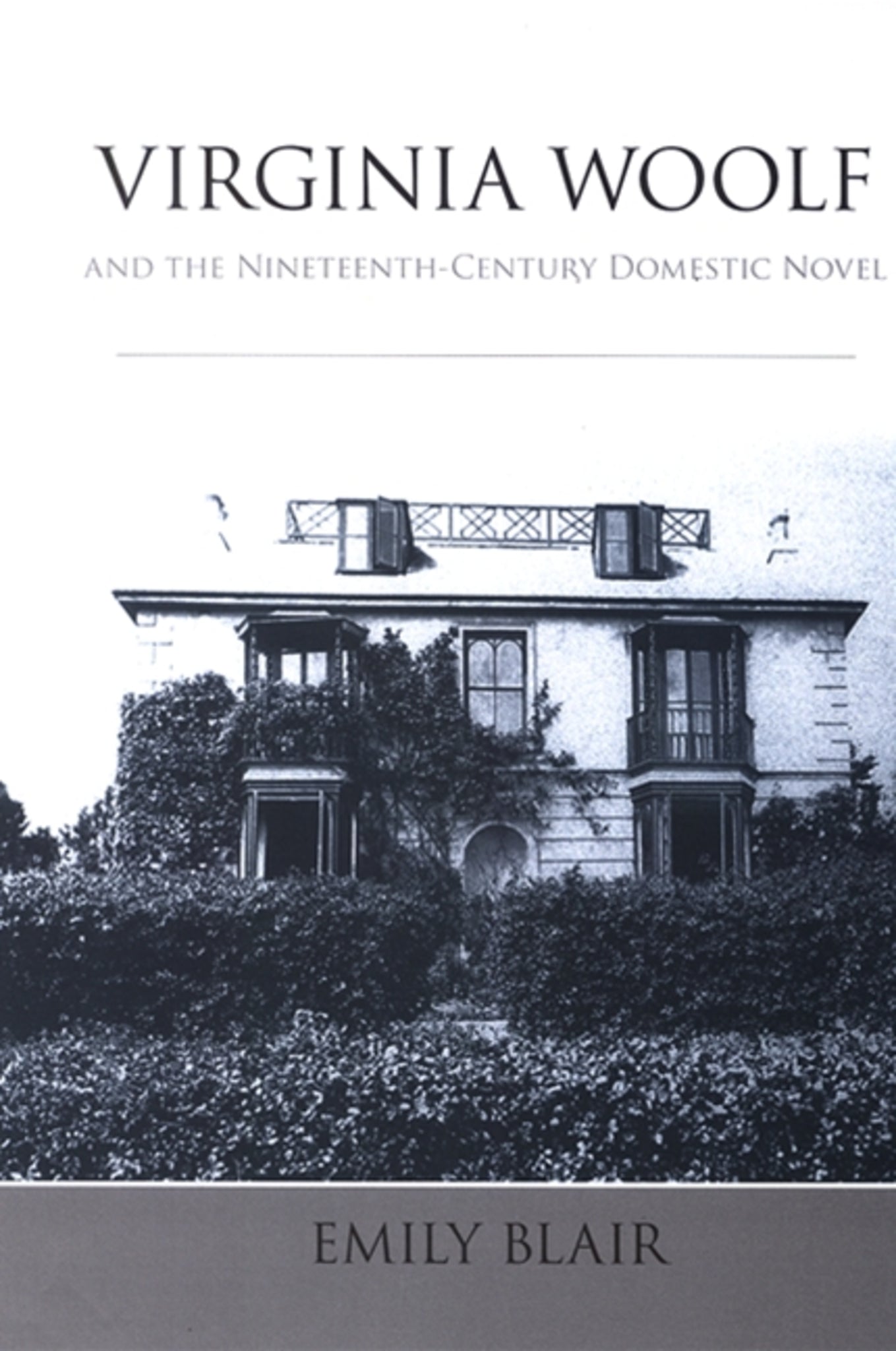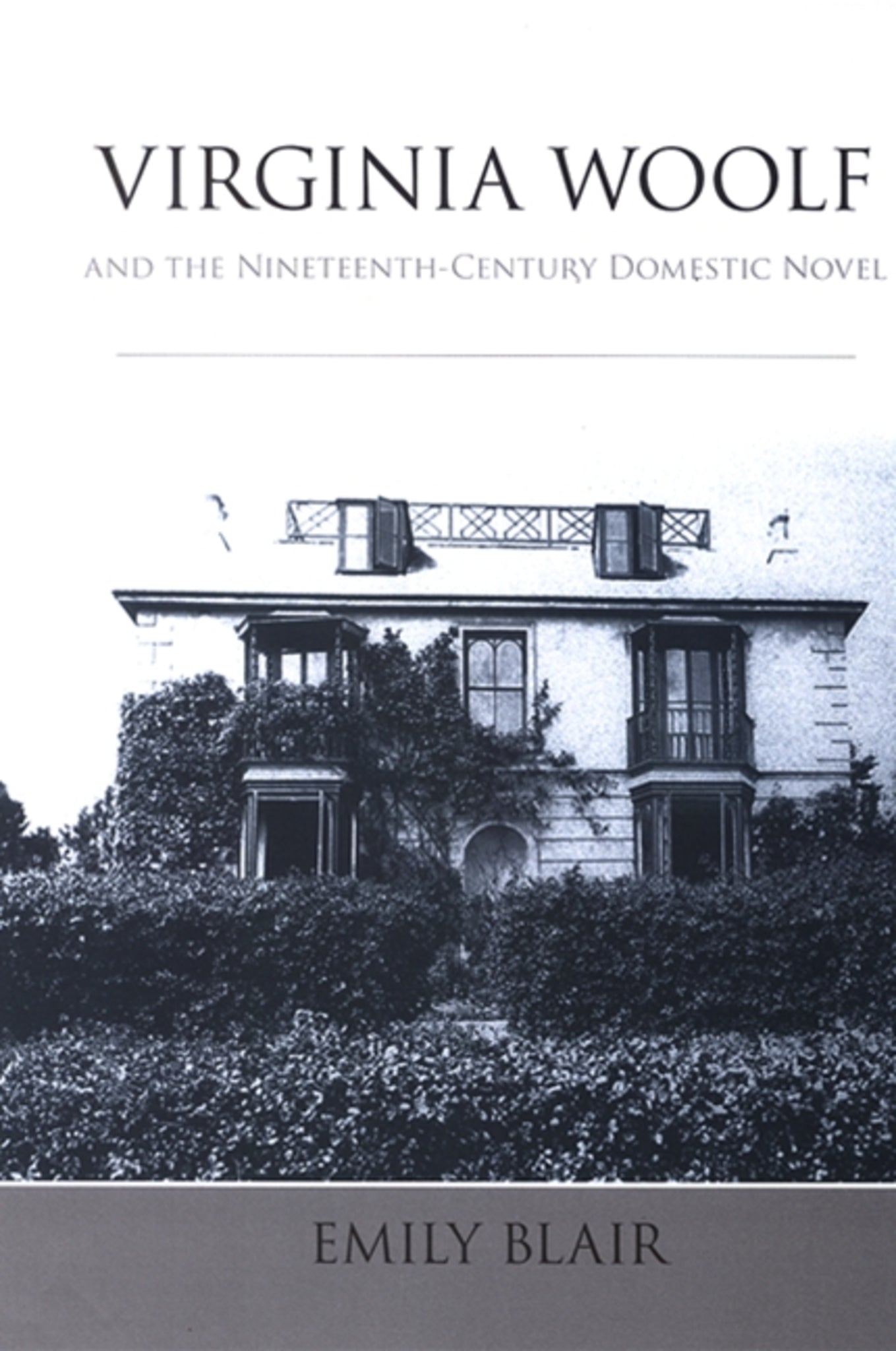We're sorry. An error has occurred
Please cancel or retry.
Virginia Woolf and the Nineteenth-Century Domestic Novel

Some error occured while loading the Quick View. Please close the Quick View and try reloading the page.
Couldn't load pickup availability
- Format:
-
03 January 2008

Traces Woolf's persistent yet vexed fascination with nineteenth-century descriptions of English domesticity and female creativity.
In Virginia Woolf and the Nineteenth-Century Domestic Novel, Emily Blair explores how nineteenth-century descriptions of femininity saturate both Woolf's fiction and her modernist manifestos. Moving between the Victorian and modernist periods, Blair looks at a range of nineteenth- and early twentieth-century sources, including the literature of conduct and household management, as well as autobiography, essay, poetry, and fiction. She argues for a reevaluation of Woolf's persistent yet vexed fascination with English domesticity and female creativity by juxtaposing the novels of Elizabeth Gaskell and Margaret Oliphant, two popular Victorian novelists, against Woolf's own novels and essays. Blair then traces unacknowledged lines of influence and complex interpretations that Woolf attempted to disavow. While reconsidering Woolf's analysis of women and fiction, Blair simultaneously deepens our appreciation of Woolf's work and advances our understanding of feminine aesthetics.


"…Blair's study has serious implications for our understanding of Woolf's feminism, and for feminist literary criticism … The reconsideration of Woolf as reader and feminist in the context of a new way of understanding anxiety of influence—who made it into her genealogy and why, and what this says about a canon of women writers that is still evolving—could open new doors to new rooms." — Woolf Studies Annual
"Virginia Woolf and the Nineteenth-Century Domestic Novel takes a prominent place among recent works that examine Woolf in the context of new formations of literary history … Blair provides an opening for fresh readings of familiar Woolf texts that will encourage reconsideration of both her feminism and her relations with her literary foremothers." — Victorian Studies
"Blair's analysis supplies an intriguing way of thinking about women writers in the nineteenth century that positively complicates our understanding of 'popular' and 'highbrow' literature … and of Woolf's efforts to redefine these concepts for her own fiction as well as a changing readership." — Virginia Woolf Miscellany
"Emily Blair's Virginia Woolf and the Nineteenth-Century Domestic Novel makes a helpful contribution … by demonstrating that we do not have to choose between connecting Woolf with Victorianism or modernism—she has links with both."— Tulsa Studies in Women's Literature
"The intellectual importance of this book is apparent in the conjunction of textual and biographical readings provided by the author. She makes connections that help us to better understand both Woolf's modernism and the literary/cultural influence of the Victorian period." — Carol Hanbery MacKay, author of Creative Negativity: Four Victorian Exemplars of the Female Quest
"Considering these domestic novels in relation to Virginia Woolf enlarges our understanding of the authors and helps us to conceive a tradition. After reading this book, I will read Woolf's novels differently, in the context of many Victorian novels, and that is quite an accomplishment for Blair." — Adrienne Munich, author of Queen Victoria's Secrets
Acknowledgments
Abbreviations
Introduction—Poetry the Wrong Side Out
1. The Slant of the Kitchen Chair: Reassessing Virginia Woolf’s Relationship to Her Nineteenth-Century Predecessors
2. The Etiquette of Fiction
3. The Wrong Side of the Tapestry: Elizabeth Gaskell’s Wives and Daughters
4. The Bad Woman Writer—"Prostituting Culture and Enslaving Intellectual Liberty": Virginia Woolf and Margaret Oliphant
5. A Softly, Spiritually Green Damask: Margaret Oliphant’s Domestic Genius
6. Cool, Lady-like, Critical or Ravishing, Romantic, Recalling Some English Field or Harvest: Virginia Woolf’s Perfect Hostess
Epilogue
Notes
Works Cited
Index



